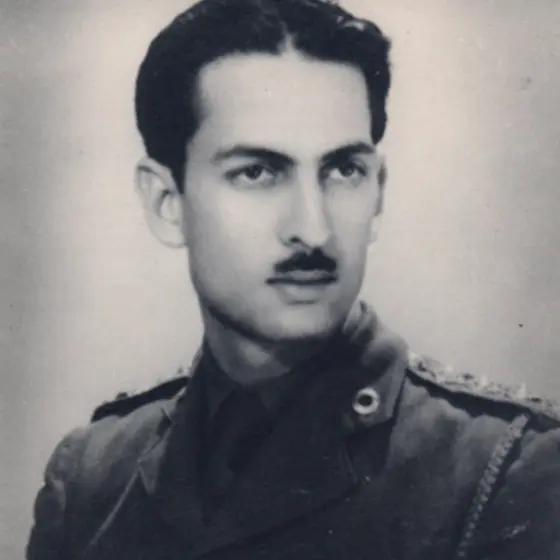

Despite these strong nationalist sentiments, the rise of fascism presented a pressing global threat and in April 1942 he enlisted, training as an officer at the Military College, Bangalore, and was commissioned as a 2nd Lieutenant in the 11th Sikh Regiment. His first posting to a battalion in a remote part of East Bengal proved frustrating. "The Battalion, unknown to me, turned out to be a ‘garrison battalion.’ I felt let down. I was a 22-year-old, keen to join a fighting force. Instead, I found myself in a version of Dad’s Army".
An extraordinary opportunity arose through an Army Gazette advert seeking officers for training as combat cameramen. "I had been a keen amateur with an 8mm home-movie camera. I applied for the course, and the C.O. gave me a glowing report… “ (Yavar had on occasion made his nationalist sympathies known to fellow officers). At the newly established Indian Army Film Institute in Calcutta (Kolkata) he underwent intensive training run by professional British filmmakers. "I was in seventh heaven", he recalls.

His work brought him into contact with senior figures, including Field Marshal Sir Claude Auchinleck, the Commander-in-Chief, for whom he was assigned as a special cameraman.
The end of the war did not bring an end to upheaval. The partition of India was a deeply painful period. Captain Abbas was tasked with filming the ‘Birth of Pakistan’, leading an Army convoy carrying infrastructure from Delhi to Rawalpindi. "The scenes of destitution, of hapless and helpless refugees travelling in both directions... are also seared in my memory". His personal loyalties were tested, as his elder brother was an officer on the Indian side in Kashmir. It was Auchinleck who facilitated his disengagement from the Pakistan Army, advising him in Urdu, "Captain Abbas I think you better go to your susaraal (in-laws). He meant England". This advice followed his meeting and falling in love with an Englishwoman, an officer in the Women’s Auxiliary Force, while posted in Japan with the British Commonwealth Occupation Forces.
Captain Abbas eventually settled in England, establishing his own film company. His career saw him move freely between making films, broadcasting and journalism. He translated the works of literary giants like Shakespeare into Urdu for plays and features that he produced and directed for the BBC. His own films, including ‘India! My India!’, ‘Faces Of India’ and ‘Cricket In India’ were shown on national TV networks and won awards at film and TV festivals. He also served as a Films Consultant to the United Nations, Chief of Films and Television at Third World Media and gained renown for his recitations of the poet Anees.
